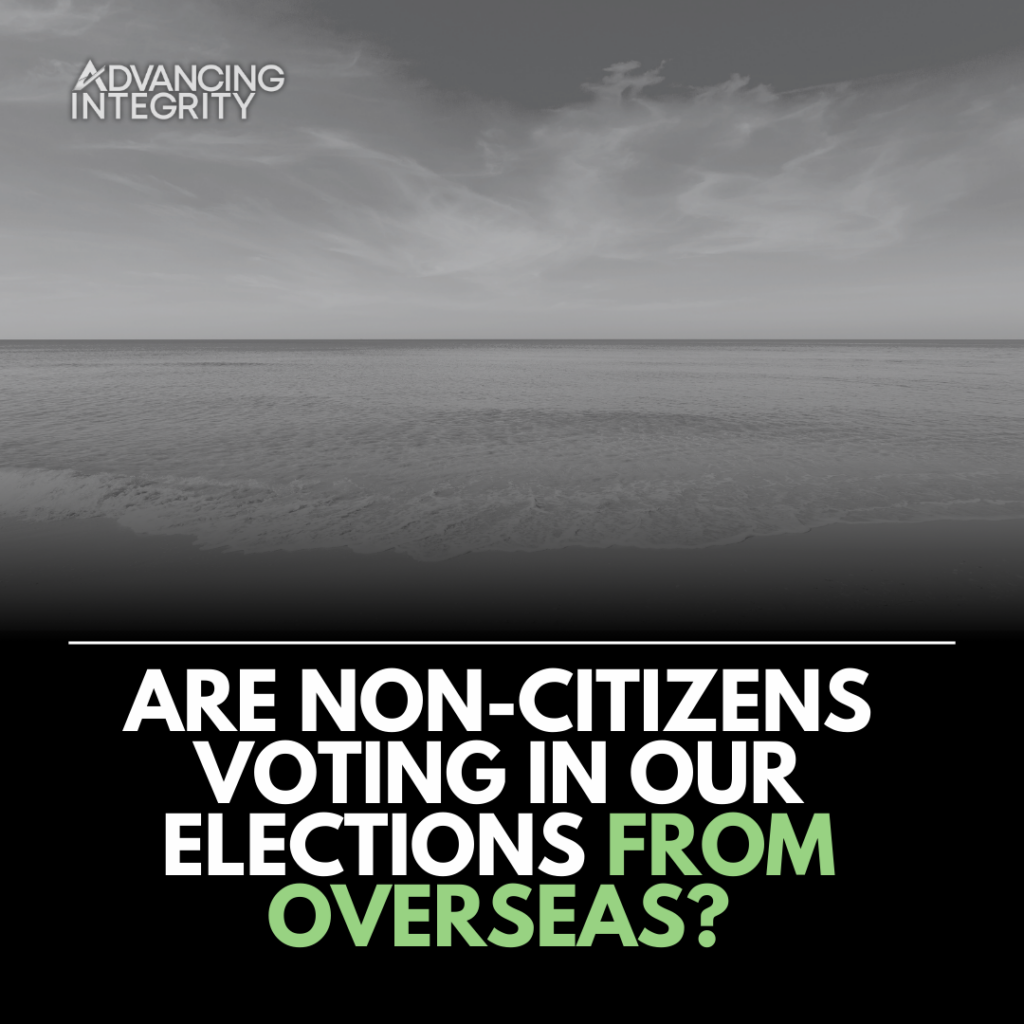As foreign nationals pour across our borders the risk of non-citizens voting in our elections is increasing. At the same time, a spike in overseas voting could pose that same threat. An average of 60% of votes from overseas are not coming from the military and their spouses. Vote From Abroad is actively recruiting these non-citizen voters. They appear to be a non-partisan group until you see the small disclosure that they are linked with Democrats Abroad.
How sure are we that these votes cast outside our borders are those of eligible US citizens?
The Uniformed and Overseas Citizens Absentee Voting Act (UOCAVA) was passed primarily to assist the military and their dependents to vote. Exemptions from some of the voting requirements should be made to accommodate those serving our country. Their votes must be heard.
In the last decade, however, those military families have become less than half of those using the overseas voting program. It is those non-military overseas voters that now need more scrutiny. Overseas voting drew particular suspicion in 2020 when shut-downs restricted travel and citizens abroad were sent home. The number of overseas tax returns plummeted while the number of UOCAVA ballots grew. This could indicate either tax fraud or election fraud.
UOCAVA has broad requirements, but most of the details are determined by the states, similar to other methods of voting by mail and voting in person. Just as some other states allow same-day registration, offer ballot by mail privileges to all voters, and do not require ID, they typically have a more relaxed approach to overseas voting as well.
There are states where someone can send an email requesting a federal ballot, submit that ballot via email, and never have to have lived in the US or shown proof of citizenship. They use the former address of a parent who is a citizen, but doesn’t have to provide documentation of that citizenship, and state that they do not have a social security number or driver’s license from that state. How can anyone be certain that it is an eligible citizen emailing that vote to the elections office?
Texas is fortunately more strict than most. Just like voting by mail within a Texas county the process begins with an application. An overseas voter can use the regular ballot by mail application (ABBM) and complete the normal process for voting by mail or a Federal Post Card Application (FPCA). The FPCA can act as both an application to receive a ballot and an application to register to vote. In Texas, both the ABBM and FPCA can be physically mailed or faxed, but that faxed copy must be followed by a physical copy within 4 business days.
A voter using an FPCA, however, can also email a scanned copy of the signed application. This is an exception to the required “wet” or ink on paper signature for all other applications. Couple this with the fact that the instructions of the application ask for a US address, but the voter need not “have any current ties with this address”. In some cases the overseas voter will receive a ballot for only federal races, but others will receive an entire ballot.
Then, the ballot can be received through the mail like a regular ballot by mail or the voter can be emailed an unmarked ballot. The ballots received through the mail are then returned that way in a standard fashion. The emailed ballots, printed on regular paper from any computer, are then returned in regular envelopes with carrier envelope templates taped or pasted to them. These ballots are then processed by the Early Voting Ballot Board (EVBB) who will verify them and remake their ballots so they can be scanned and counted.
It is incredibly important to have trained, trustworthy people on the EVBB doing everything they can to ensure that all mail-in ballots, whether from overseas or not, are verified and properly processed. Poll watchers are also greatly needed for these EVBB positions. Find out how you can get involved HERE.

